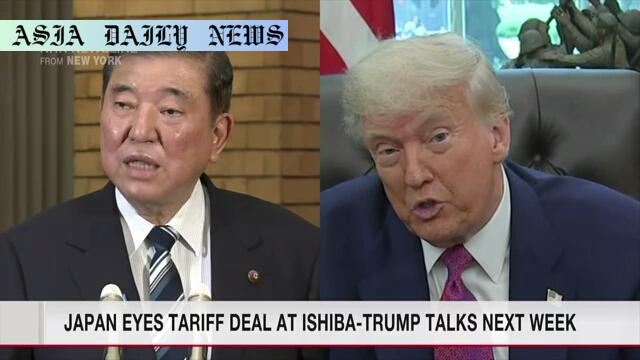Japan-US Trade Talks: Ishiba to Discuss Tariffs with Trump
- Japan PM Ishiba to meet President Trump during G7 in Canada.
- Talks will focus on tariffs and minimizing the US trade deficit.
- Economic ministers from both nations are working on agreements.
- Key discussions on Israel-Iran tensions for stability in the Middle East.
- Future meeting strategies discussed over a phone call of mutual sentiment.

Introduction to Japan-US Trade Talks
Japan’s Prime Minister Ishiba Shigeru has announced plans to meet with US President Donald Trump at the upcoming G7 Summit in Canada. This meeting carries significant economic and diplomatic weight, as both leaders aim to address pressing issues such as trade disputes, tariffs, and regional stability. This announcement follows a recent phone conversation between Ishiba and Trump, which highlighted their mutual willingness to resolve ongoing challenges in bilateral trade and expand economic cooperation.
Efforts to Review US Tariffs
One of the core goals expressed by Prime Minister Ishiba in the anticipated discussion is the review of US tariffs, particularly those impacting Japan. During the phone call, Ishiba emphasized Japan’s commitment to reducing the US trade deficit through substantial investments and increased imports. These measures represent Japan’s dedication to maintaining and strengthening its economic partnership with the US while fostering mutual benefits.
In preparation for these high-level discussions, Japan’s Economic Revitalization Minister Akazawa Ryosei has been holding preliminary talks in Washington. The outcomes of these ministerial talks will lay the foundation for further discussions between the two leaders. The objective of these efforts is to pave the way for a comprehensive and equitable trade agreement that aligns with both nations’ interests.
Prioritizing Regional and Global Stability
Beyond economic matters, the leaders also discussed concerns over geopolitical tensions in the Middle East, specifically Israel’s recent military actions targeting Iran. Both leaders agreed on the critical importance of peace and stability in the region. Their collaboration reflects a shared commitment to closely monitoring developments and taking joint action where necessary.
Amidst these pressing political and economic discussions, PM Ishiba displayed a personal touch by wishing President Trump a happy birthday in advance, contributing to an atmosphere of warmth and goodwill.
Key Takeaways and Future Considerations
The forthcoming meeting between Ishiba and Trump is expected to solidify the collaborative efforts of both countries in reaching a mutually beneficial trade agreement. Furthermore, the dialogue underscores the importance of diplomacy and partnership in addressing global challenges. While significant strides have already been made, officials must continue to navigate sensitive issues with a balanced approach, ensuring that the economic and political outcomes prove advantageous for both countries.
With Japan’s strong commitment to taking steps that benefit the US economy, this meeting is anticipated to yield positive results, fostering a deeper and more productive alliance. Observers will be keenly watching whether agreements on key issues, such as tariff reductions, can be reached during or shortly after the G7 Summit.



Commentary
Insights into Japan-US Relations: A Commentary
The upcoming meeting between Prime Minister Ishiba Shigeru and President Donald Trump at the G7 Summit carries a significant weight in the context of Japan-US relations. In a global landscape dominated by economic competitions and regional instability, their discussions are poised to serve as a critical determinant of the bilateral trajectory between these two major powers.
The Economic Perspective
Economically, this meeting reiterates Japan’s proactive approach toward addressing US concerns, especially in light of its trade deficit. By proposing massive investments in the US and committing to increasing imports, Japan has illustrated strategic foresight. This dialogue not only ensures economic collaboration but also reinforces Japan’s image as a dependable ally to the United States.
However, challenges remain. Striking a balance between satisfying US demands and protecting Japan’s domestic industries will require nuanced diplomacy. Both leaders must take a pragmatic and farsighted approach to ensure long-term equitable trade relationships.
Geopolitical Significance
From a geopolitical vantage point, their dialogue over Middle Eastern tensions highlights the multidimensional nature of this engagement. Japan’s active participation in stabilizing the region indirectly emphasizes its evolving role as a global leader beyond its immediate region. This aligns well with the US’s general inclination toward fostering peace and security on a global scale.
Anticipated Outcomes
Given the deliberate and constructive tone set by their phone conversation, the upcoming meeting offers hope for tangible progress. Whether through trade agreements or collaborative stances on geopolitics, this partnership has significant implications for economic revitalization and global peace efforts.